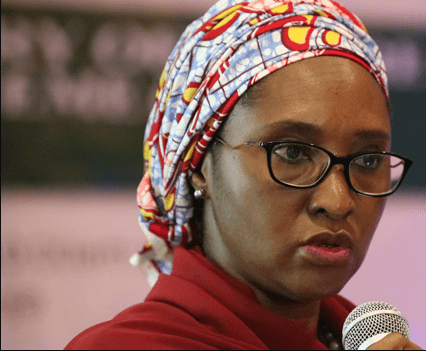
FG Secures $800m From World Bank As Palliatives For Poor Nigerians
The Federal Government has secured the sum of $800 million from the World Bank under the National Social Investment Programme as part of palliatives to cushion the negative effects of the plan to remove subsidy on the petroleum products by June 2023.
The Minister of Finance, Budget, and National Planning, Hajiya Zainab Ahmed, announced this Wednesday while fielding questions from State House reporters after the Federal Executive Council (FEC) meeting at the Presidential Villa, Abuja.
She said the fund which had been secured was ready for disbursement.
Asked about the palliatives that would be put in place ahead of the removal subsidy on the premium motor spirit popularly known as petrol, the minister said: “The second question on exit of fuel subsidy, this is a commitment in the Petroleum Industry Bill. There is a provision that says that 18 months after the effectiveness of the PIA that all petroleum products must be deregulated, that 18 months takes us to June 2023.
“Also, when we were working on the 2023 Medium Term Expenditure Framework and the Appropriation Act, we made that provision to enable us exit fuel subsidy by June 2023.
“We’re on course, we’re having different stakeholder engagements, we’ve secured some funding from the World Bank, that is the first tranche of palliatives that will enable us give cash transfers to the most vulnerable in our society that have now been registered in a national social register. Today that register has a list of 10 million households. 10 million households are equivalent to about 50 million Nigerians.
“But we also have to raise more resources to enable us do more than just the cash transfers and also in our engagements with the various stakeholders, the various kinds of tasks that we have go beyond the requirement of just giving cash transfers. Labour, for example, might be looking for mass transit for its members.
“So, there are several things that we’re still planning and working on, some we can start executing quickly, some are more medium-term implementation.”
When asked how much funding was received from the World Bank for the execution of the planned exit, she said “$800 million for the scale up of the National Social Investment Programme at the World Bank and it’s secured, it’s ready for this disbursement”.
Asked if the incumbent government had been discussing subsidy removal with the incoming administration, she said, “there are a lot of discussions going on at different levels, including with members of the transition committee of the incoming government”.
Last week, the Minister of Labour and Employment, Dr Chris Ngige, had said the incoming administration of Asiwaju Bola Tinubu would be left to handle all issues on palliative measures to be introduced to cushion the impending discomfort the stoppage of petrol subsidy would bring if it was finally implemented in June 2023.
Ngige, while reacting to a question on the issue, said, “The subsidy palliatives will be left to the incoming government to implement. We’ll simply hand over to them.
“Of course, we will give recommendations which they are at liberty to either accept or reject.”
The Minister of State, Budget and National Planning, Clement Agba, had on March 15 said no conclusion had been reached on how to lessen the likely impacts of the proposed fuel subsidy removal on the citizenry as it prepared to do away with petroleum products subsidy from the middle of 2023.
He had, while reacting to a question, said though a committee headed by Vice President Yemi Osinbajo had been working for about a year, nothing definite had been agreed upon.
Agba, who expressed hope that the committee working with state governors could arrive at a common position on the matter soon, added that no timeline for the Osinbajo’s committee to conclude the discussion which he said is ongoing.
When asked to speak on palliative measures that would be put in place to mitigate the impacts of the subsidy removal, he said: “For over a year plus now, the Vice President, Yemi Osinbajo has been leading a committee working on this and the National Economic Council also has a committee that has also been working on this.
“So, the stage that we are in now is how to finalize the suggestions that have come out from both the federal government and the governors side.
“Like you know, it is something that is going to affect the entire nation.
“They will just have to ensure that everyone is carried along, that is both the federal and sub-national governments.
